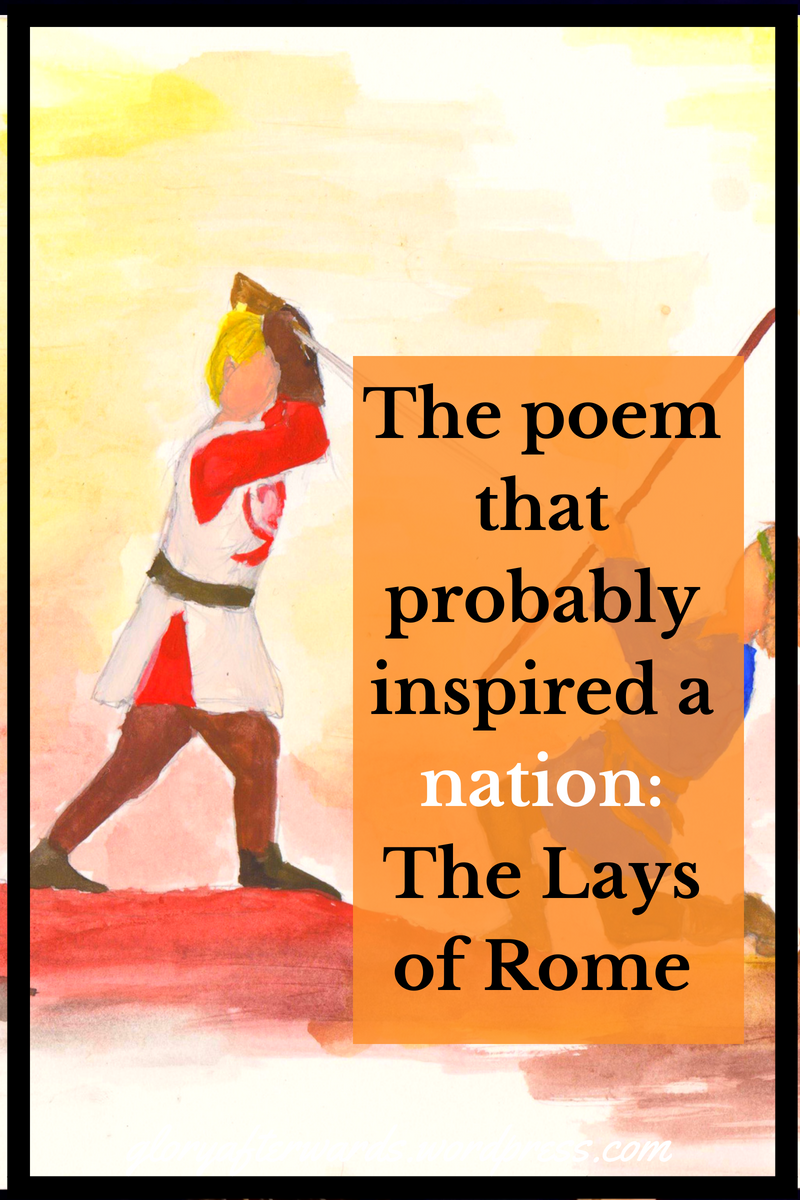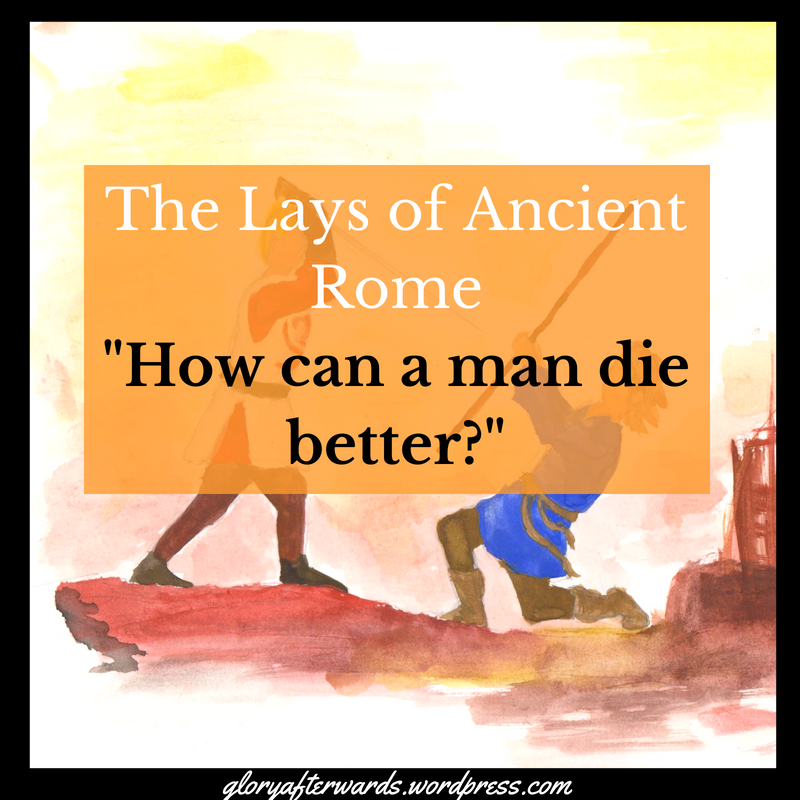I’ve always been interested in how literature reflects and affects society. Perhaps that’s why I am fascinated by the Lays of Ancient Rome. On the other hand, it could just be because they sound cool.
The Lays are a collection of poems by Thomas Babington Macaulay. They are Roman ballads, set in Ancient Rome about Roman heroes, yet were written in 1842 by a Victorian gentleman.
The most famous is Horatius, particularly the oft-quoted lines:
“To every man upon this earth
Death cometh soon or late.
And how can man die better
Than facing fearful odds,
For the ashes of his fathers,
And the temples of his gods.”
Dramatic, yes? According to wikipedia school-boys in the 19th century grew up on these lines. Was their inclusion into the school curriculum a cause or effect of the rampant imperialism and ‘great game’ attitudes of that era?
I can’t help but think of the eager British recruits and their steadfast heroism at the dawn of WWI – this is what they fed upon, and who knows, it may have saved their nation.
Churchill certainly used it to great effect in his WWII speech to the cabinet, while Doctor Who sci-fi-ed it under David Tennant, as did Tom Cruise in Oblivion (2013).
Some words just capture our imagination. Is it because we love to champion the ‘fight to the end’ and ‘endure against the greatest odds’ and ‘keep trying’ characteristics as those which make us truly human?
I suspect that’s part of it.
That, and we’re all just melodramatic, Romanticists at heart. Or at least, I often am, which is partly why I couldn’t resist using the ‘Lays’ in a novel I wrote:
To set the scene: my two British acquaintances-not-yet-friends are tied together outside an army camp in the middle of Afghanistan in the winter of 1879. They are trying to escape.
‘Try again.’ Mills was coiled like a spring, unable to move without him.
Trevult nodded, feeling the other man tense. ‘Go!’ Trevult’s hands were drawn up as Mills pulled, and he strained the rest of his body in an attempt to follow.
It did not.
‘How can a man die better, than facing fearful odds for the ashes of his fathers and the temples of his gods?’
‘I’ve heard that before!’ Trevult reopened his eyes at the quotation. ‘That’s not Gilgamesh. It can’t be! Is it Shakespeare?’
Mills sighed. ‘Of course you’ve heard it before. Every boy learns it at school. It’s from the Roman Lays.’
Trevult felt more confused and more than a little disheartened. ‘We’re running out of time. Do you ever say anything original, or just quote books?’
‘Nothing is original.’ Mills fell back down. ‘I just like to steal my words a bit more selectively than most.’
Trevult tried to grin. He appreciated the man’s attempt at distraction. Nevertheless, they had to get free. He sucked in a breath. ‘I’m ready to try again.’
‘Knew it,’ he heard Mills mutter.
‘Pardon?’
‘You’re the sort of man who’s inspired by epic poetry.’











[…] The lays of Ancient Rome (how a poem inspired a generation) […]